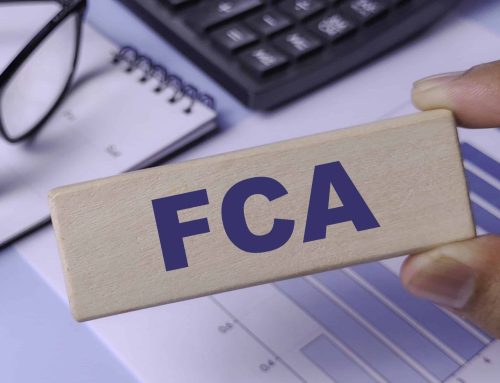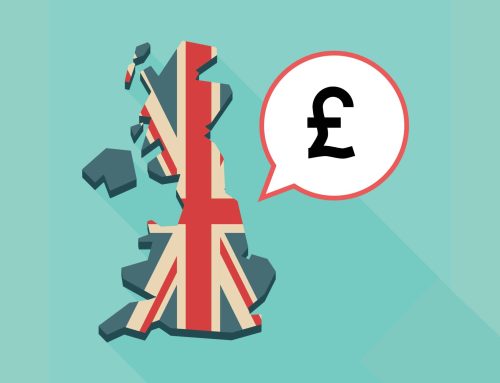
Business loans are an invaluable way of unlocking a business’s growth. They can cover costs for expansion, recruitment, marketing, materials, and much more.
But the key difference between secured and unsecured business loans UK is collateral. Secured finance requires business owners to use an asset as security for lenders if they default on payments.
If this incident occurs, then lenders have the right to sell the asset(s) and use the money to recoup their money, interest, and valuation fees. These assets are usually high-value such as property, vehicles, and machinery.
Unsecured business loans use personal guarantees as security for lenders, which means the business owner(s) are personally responsible to pay the loan back if payments default.
Every business operation works differently, so the finance option you choose should be consistent with your plans for growth. It should also be coherent with what is achievable for your business right now.
Here is some help to decide what type of business loan is right for you.
Unsecured Business Loans
As unsecured business loans don’t require an asset as security, there are key facts about their accessibility and cost that you should know.
Benefits
Fast Speed
Unsecured finance does not require a valuation of property (or other assets) therefore the paperwork is sped up tenfold.
Most of the time, business owners must only send their last 6 months of business bank statements and last set of full filed accounts to their finance broker or lender.
If they’re approved for commercial finance, the funds can be transferred to directors within 24 hours of their application.
Easy
With no property involved, the funding process is streamlined to a simple email exchange of business documents. You can send PDF bank statements and filed accounts to your finance broker or lender in seconds.
After that, directors can focus their attention back on other areas of their business operation. With no assets to consider, the funding process can be less stressful and time-consuming.
Not Risking Assets
Whilst being a homeowner will increase your chances of approval for an unsecured business loan, it’s not essential.
This means that directors don’t have to risk their property (or other valuable assets) to access commercial funding and grow their operation. It also opens the door to people with successful businesses, but no owned property, to apply as well.
Instead of using security, lenders will look at the health of your business, turnover, and credit rating to determine how risky you are to lend to.
Drawbacks
Whilst unsecured business loans UK are faster and easier to arrange, there can be potential drawbacks to their flexibility.
Strength of Business
Unsecured business loans are heavily reliant on the health of your business. This means that unless you have sizeable turnover and trading length, it’s difficult for brokers to raise commercial finance.
As there is no security to fall back on, lenders want to work with growing companies that can present a history of successful trading. It reduces risk for them and, in turn, unlocks more flexibility for you with loan amounts and terms.
Interest Rate
Unsecured business loans are riskier for lenders to offer than secured loans, which means they can incur higher interest rates. This is because secured loans provide lenders with an asset to fall back on if repayments are defaulted.
Unsecured loans are also much faster to arrange, so customers pay a premium price for a speedy and hassle-free service.

Secured Business Loans
Secured business loans require a high-value asset as security, which comes it own benefits and drawbacks.
Benefits
Larger Amounts
Lenders are willing to be more flexible with loan amounts when they have an asset as security. Particularly if the asset is of high value, such as an expensive property or vehicle.
The more a business owner offers a lender as security, the more funding opportunities they’ll open to them.
Unsecured loans are more dependent on your likelihood to earn instead of what you already own, like secured loans.
Lower Interest
Lower risk for lenders means they can offer lower interest rates.
Business owners can use their assets (like property, vehicles, or equipment) to reduce the cost of finance products by offering them as security.
But take time to consider if it’s wise to risk your home or an expensive item to get a cheaper rate on your loan. If you’re business is strong and you’re confident in its potential to earn, a secured loan could be the route to saving thousands of pounds in interest.
Longer Terms
You can typically get secured finance over a longer period than unsecured finance. Lenders generally consider any term over 5 years a long-term loan.
This can be a great option for businesses that want to lower their monthly payments as much as possible, even if it means paying more interest overall.
Agreeing to a longer repayment schedule can unlock higher loan amounts, which is ideal for high-priced business purchases.
Drawbacks
Need a Sizeable Property
Property is the most common asset that business owners use as security for a secured business loan. But owning a property does not guarantee approval.
The loan term and amount you are eligible for will depend on the value of your property and the remaining mortgage balance as well. The more you can offer as security, the more financing options you’ll be eligible for.
Time Consuming
Secured business loans require a valuation process that can take up to 6 weeks or more.
It involves hiring a surveyor or valuer to request the necessary documents from the business owner about the asset. This includes planning consents, tenancy agreements, and management accounts to name a few.
There will also be an in-person inspection of the condition of the asset(s) and a valuation report to confirm it. If any issues arise (which often happens with tangible assets that depreciate), it can add months onto the funding process.
However, unsecured business loans UK can be arranged in as little as 4 hours.
Upfront Costs
You may save more money in the long term with the lower interest rates of a secured business loan, but there are still upfront costs to consider.
Legal and valuation fees regarding expensive assets like property can range anywhere from approximately £500 to £5000. The cost will differ depending on the amount and complexity of the work that’s required from your valuer.
What’s more, this investment isn’t refunded if your application for a business loan is denied afterwards.
What’s Best for Me?
Your decision on whether a secured or unsecured business loan UK is right for you will rely on collateral.
If you have high-value assets like property, a secured loan could work for you. It could unlock higher loan amounts, lower interest rates, and longer repayment terms. But you must be willing to risk the asset as security for lenders.
If your business health and credit is strong, an unsecured business loan is a faster and more straight forward funding process. Just remember that interest rates are likely to be higher.
Getting an Unsecured Business Loans UK
At Crispcap, we help small businesses get unsecured business loans to ease their cash flow and fuel their growth. You can apply for a business loan here or use our loan calculator to get an idea of terms and amounts.




